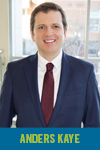PaperCLIP is a Business and Intellectual Property Law Journal that was formed in the Fall of 2012. The mission of the Journal is to produce high quality legal writings that address some of the pertinent issues surrounding the intellectual property community. The Journal also strives to fuse relationships between TJSL students and legal professionals whose expertise are in the field of intellectual property and business. The Journal urges students who are interested in intellectual property or business law to submit their writings to be published.
“PaperClip provides a great opportunity for students to improve their writing skills, boost their resume, and contribute to the IP community by writing and editing articles of all lengths.” Professor Semeraro. The Journal gives students the experience of writing a legal article while getting constructive feedback to help improve their writing abilities.
“PaperClip gives students an opportunity to make a brief legal argument without writing a law review article. Not only can students hone their writing skills, they also become very knowledgeable in the subject.” Professor Cromer-Young. By being well versed in a particular area of law, students can use that knowledge to facilitate conversation with professionals during networking opportunities and interviews.
We urge all students interested in this area of law to be apart of PaperCLIP, whether its writing an article to be published or help the Editorial Board edit submitted articles.
For the latest published work, visit the Articles page.

